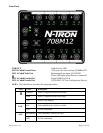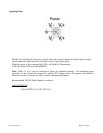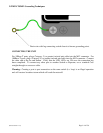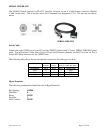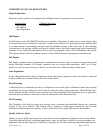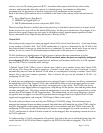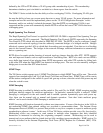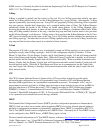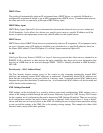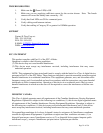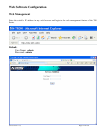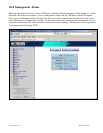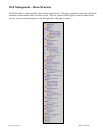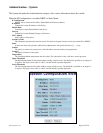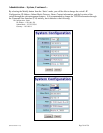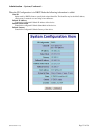(Revised 2010-11-15) Page 20 of 156
DHCP Client
The switch will automatically obtain an IP assignment from a DHCP Server, or optionally Fallback to a
configured IP assignment if unable to get an IP assignment from a DHCP server. Communication between
the client and server can optionally go through a DHCP Relay Agent.
DHCP Relay Agent
DHCP Relay Agent (Option 82) allows communication between the client and server to cross subnet and
VLAN boundries. It also allows for a device on a specific port to receive a specific IP address and if the
device is replaced, the replacement receives the same IP address as the original device.
DHCP Server
DHCP Server allows DHCP Client devices to automatically obtain an IP assignment. IP assignments can be
set up as a dynamic range of IP addresses available to any client device; or specific IP addresses based on
the clients MAC address, Client ID (Option 61), or Relay Agent connection (Option 82).
LLDP
Link Layer Discovery Protocol (LLDP) is a Layer 2 discovery protocol that allows devices attached to an
IEEE802 LAN to advertise to other devices the major capabilities they have and to store information they
discover in a MIB that can be accessed through SNMP. LLDP is formally described in IEEE Standard -
802.1AB.
Port Security—MAC Address Based
The Port Security feature restricts access to the switch by only accepting dynamically learned MAC
addresses and manually entered MAC addresses as authorized. Dynamically learned MAC addresses are
those that the switch detects on any port while in ‗Learning‘ mode. A manually entered MAC address must
designate the ports that the address is authorized on. A non-authorized MAC address will be discarded and
will be shown on the intruder log.
XML Settings Download
XML settings can be downloaded to a switch to achieve some switch configurations. XML settings cover a
subset of the settings available through the web browser. Reference Appendix A. XML Settings File Example
for the complete set of configurations that can be done using XML Settings Download. There are several top
level configuration sections and each of these sections is optional. Some sections have a ‗keep or delete‘
choice such that one can load only those in the XML file deleting the pre-existing of those particular settings
or one can add the settings in the XML file to the already existing settings. The example also shows field
character limits, and provides other guidance.



